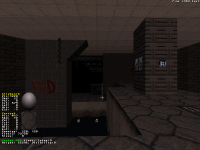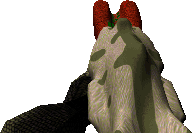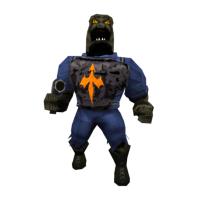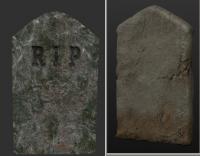 Sanek, on 21 December 2019 - 05:31 PM, said:
Sanek, on 21 December 2019 - 05:31 PM, said:
I agree that having complete vision of a map before actually doing anything is a good way to make it when you know what to make, but I'm not sure if it works as effortlessly as wanted. You know how every part of the map is going to look like, but it'll never going to be as good as you envisioned it.
You know what's funny, on that topic? I always liked posting about my Duke-related dreams in the threads that would occasionally pop up (on here but also DN-R and AMC, I remember the subject being tackled a few times), also in order to personally keep track of them and actually, to this day I can vividly recall that a lot of these would have to do with either making or playing fictional user maps that were always very much in the style I happen to be going for nowadays; at the time, in reality I could only look up to the idea of maybe one day creating such maps myself, it was nothing close to what I would be able not just to build but also to mentally conceive at the time, I still very much remember some of the action and design and then waking up thinking 'wow, I'm never going to be able to actually make this'. Basically they were a couple of one-time imaginary levels I'd either dream to be making or playing through, and they would have traits that I couldn't even comprehend consciously at the time (a certain emphasis on scale, verticality, 3D construction with massive sprite work structures e.g. whole buildings with 'fake' floors and tons of tech ROR, balconies used by enemies as strategic sniper spots, every element of the level actually serving some kind of functional purpose). Now, over a decade later and without ever really putting conscious thought into a direction, it's turning out my levels are slowly getting closer to looking exactly like how I would dream of them at the time, or at least carry more and more of that impression. What trips me out is my actual evolution could have gone on a totally different route (and I actually experimented with completely different stuff in the meantime), but now it's all coming together in the very fashion I was envisioning in dreams eons before I could actually come close to even just understanding those very degrees of sophistication in level design. It's also funny that in my case, I'm only getting there after a 'wee' twenty years of mapping (granted I never was the most active mapper, and regularly took long periods off, but that probably fueled my inspiration and progression in different ways as opposed to hindering them).
Creativity is something we all have in common (some choose to nurture it, some don't), the real adventure is learning to master your tool and its technical quirks in order to progressively come closer to your mental representation of the game with each new level you make (which happens organically as you try different stuff, so nothing to pressure yourself about especially if you're actually concerned with efficiency). With practice, one's output will start losing more and more of its naive aspects (aka. the common ground of beginner's mistakes, and I'm certainly not just talking visuals), resulting in a more accurate representation of the author's actual vision and that's the definition of style ("Style is the hallmark of a temperament stamped upon the material at hand" - André Maurois). Doesn't apply just to mapping.
My point is, getting a level to look exactly how you envision it isn't hard and if anything, is natural. The real difficulty sneakily resides in actually visualizing the level well enough, and having conceptualized it under as many angles as possible till you get to the point where it can only just come out. If you're making something and it doesn't look right, it doesn't mean you're limited in potential, only that you didn't put enough thought into its structure and function and have yet to grasp what would actually make the element as great as you imagine it. Which sends us back to:
 Sanek, on 21 December 2019 - 05:31 PM, said:
Sanek, on 21 December 2019 - 05:31 PM, said:
Or maybe I just didn't plan the map properly and then just wandering about the map for days before I finally "got it". I usually have some particular "key locations" that I know how to make, but then I struggle with everything in-between.
Which is exactly my point; those gaps of in-between should not exist anymore by the time one starts a level, or else they'll just spend a lot of time trying to artificially evolve an underdeveloped foetus.
I used to be the same before I realized my mistake and that I was most likely trying to force things (see: Dan's post regarding creative energy being a finite resource). Interestingly and spontaneously, the way I go about making a level has changed a lot over the years as though to avoid that. An evolution that still trips me out is how I used to build and fine-tune every sector and wall in every room manually before moving onto the next one whereas nowadays, I'll just draw the outline of entire sections of the level (when not the whole map) in 2D mode, see how it performs and only then throw in textures, detail etc. I feel like working in bigger chunks helps enhance the cohesion of a map and also provides authors with more options - if they get bored by a certain segment of the level for instance, they can always work on a different corner that's more inspiring at the moment which is an optimization of their energy.
 Sanek, on 21 December 2019 - 05:31 PM, said:
Sanek, on 21 December 2019 - 05:31 PM, said:
And this is actually the biggest problem of all, at least when it comes to creative process. I'm constantly putting some imaginary deadlines unto myself, and feel miserable if something goes not as I planned. I know there's no reason to make something done as fast as possible or fit into some particular date, but I just can't stand wasthing time, so when some date is coming, I use it as the reason to to step up the development and finally get the thing done.
In your place I would probably ask myself why I'm even feeling and doing all that. Sounds like a lot of unnecessary self-inflicted mental pollution that's also completely artificial (seeing as those deadlines do not exist outside your mind): if wasting time is what you can't stand (and I'm sure it is; I'm the same, and think most people are), then I'd advise meditating over how that extra pressure might be exactly what hinders your efficiency. My approach is, it doesn't matter how much time you spend in front of Mapster if that time isn't optimized and productive; then it would probably better be spent somewhere else because then you're losing efficiency both as far as mapping and as far as whatever else it is you could be doing. The editor will usually call you when you're finally ready.
 Trooper Dan, on 21 December 2019 - 06:22 PM, said:
Trooper Dan, on 21 December 2019 - 06:22 PM, said:
Also, boredom is often a signal that there is a better and more efficient way to do things.
I agree with that - boredom is a sign of stagnation and the negativity of the feeling has to do with the sensation of one not developing and progressing they way they would be naturally inclined to, and actually would, were they in the right environment. Humans as living beings are organically predisposed to grow, obviously physically but also mentally; now, in most modern societies a lot of people seem confused about the nature of that growth they need (usually due to the notion constantly being intertwined with social and financial concerns and stigmas, blurring the cards for the less watchful of players), and can only sense the distress signals that they need it, with no further instructions as to get there (since it should really be common sense in the first place; alas, it no longer appears to be). In the end, straying away from your own self has become a popular pattern to the point where many people can't even hear the clear direction their bodies and minds are constantly trying to give them anymore. This usually results in crazy amounts of frustration and non-efficiency, when the time span could be spent actually developing if only set on the right track.
 ck3D, on 05 December 2019 - 10:47 PM, said:
ck3D, on 05 December 2019 - 10:47 PM, said:
 Help
Help
 Duke4.net
Duke4.net DNF #1
DNF #1 Duke 3D #1
Duke 3D #1











